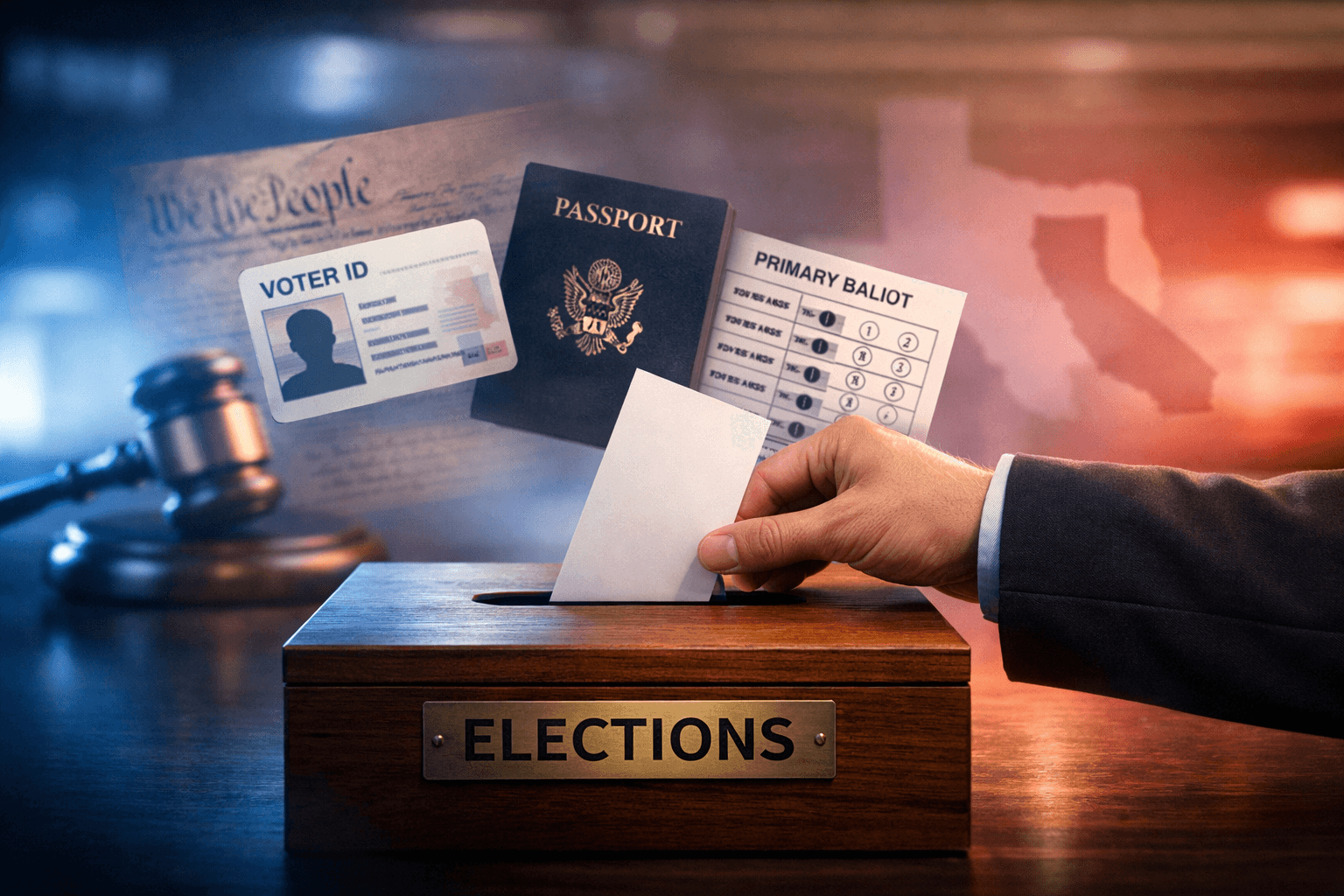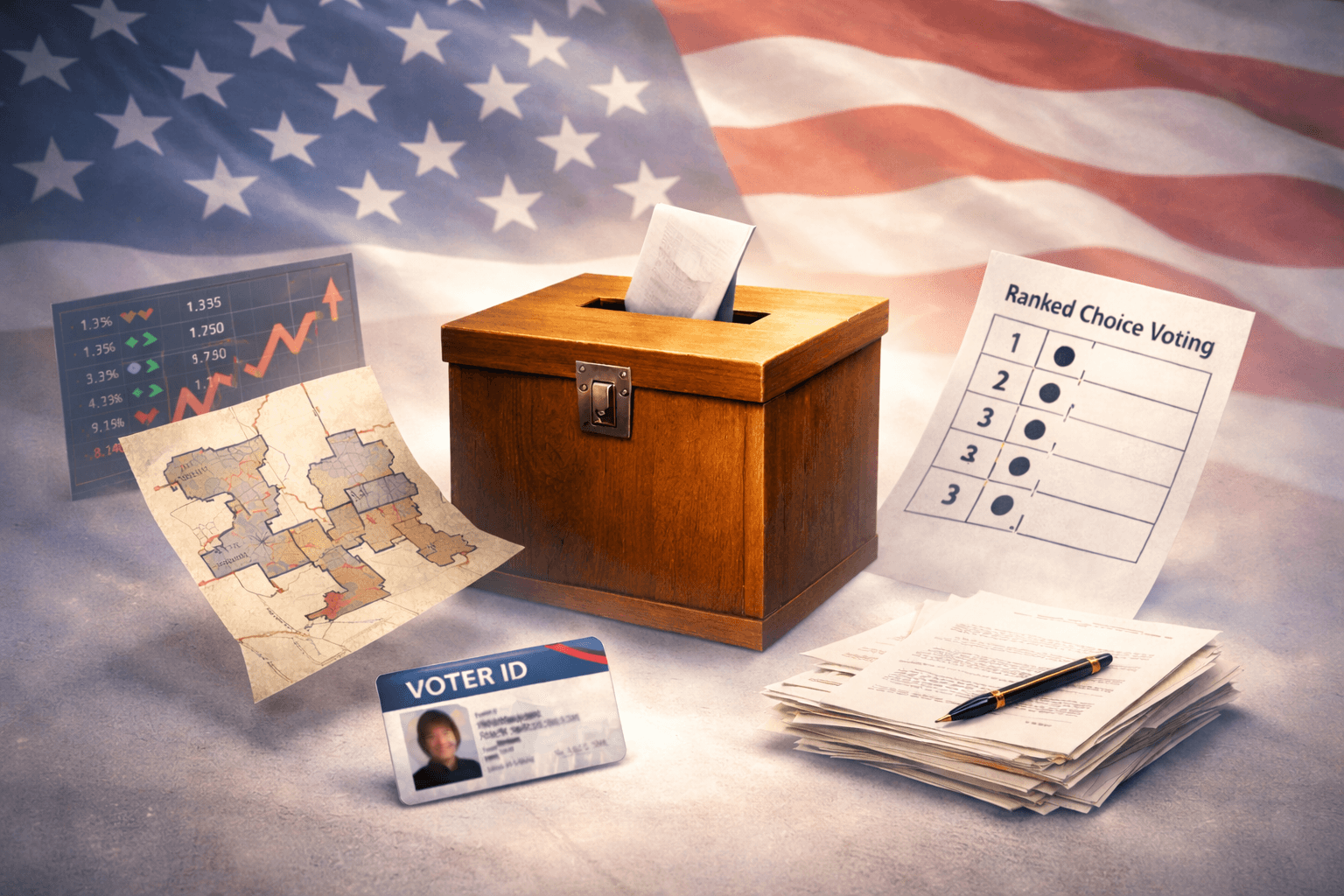On Primary Day, NY Orgs Picket on Behalf of 3.5 Million Disenfranchised Voters
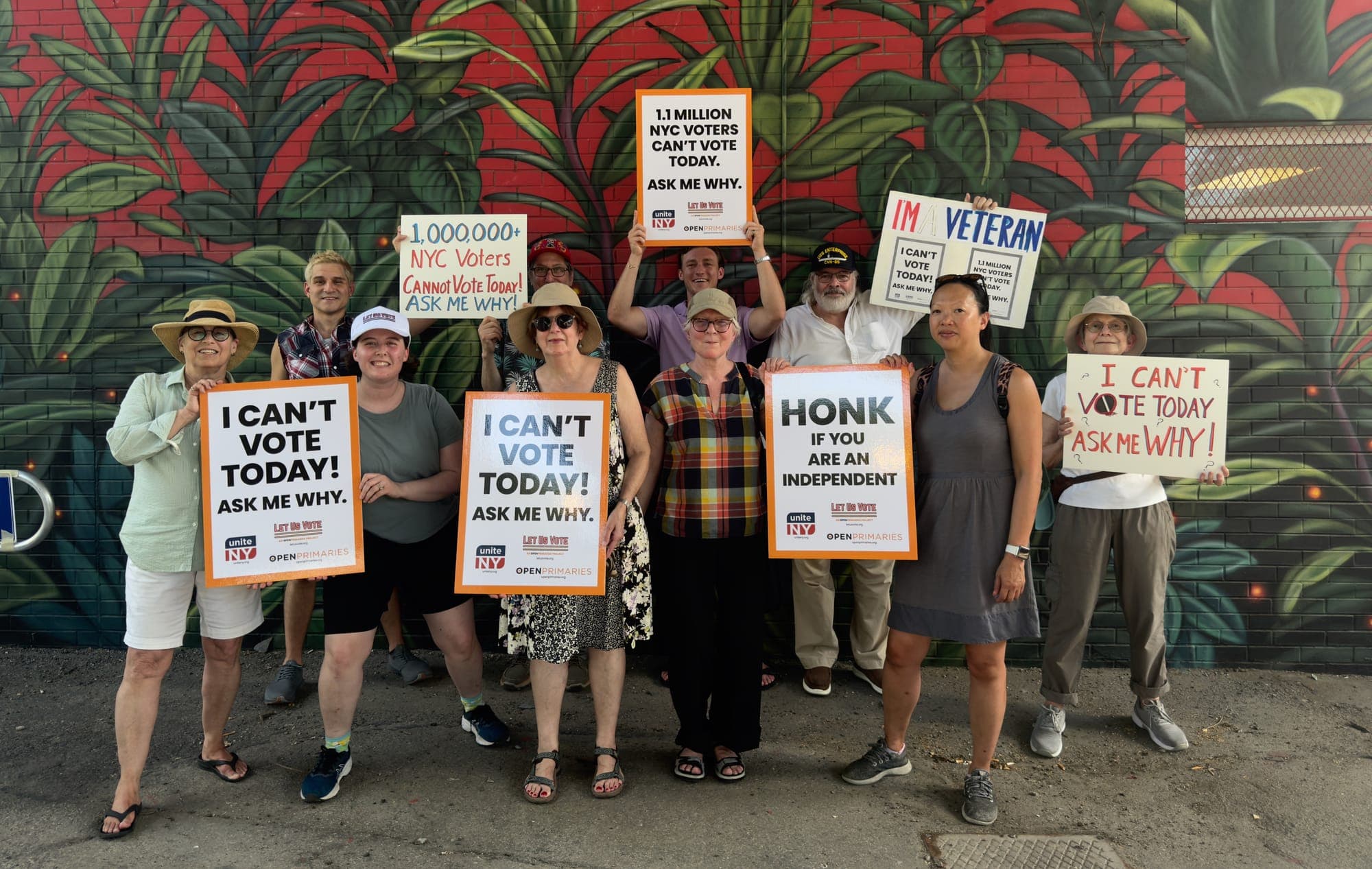
NEW YORK CITY - Much of the election coverage on Tuesday focused on the New York primaries, especially in NYC and the hotly contested ranked choice election for mayor. What got less attention, however, were the 3.5 million independent voters in the state locked out of elections they paid for.
More than 1.1 million of these voters live in New York City alone.
Three New York-based groups – Open Primaries, Let Us Vote, and Unite NY – mobilized dozens of independent voters in Albany, Buffalo, New York City, Rochester, and Syracuse to picket for equal voting rights at the polls and educate voters on the deliberate voter suppression of citizens who choose not to affiliate with a party.
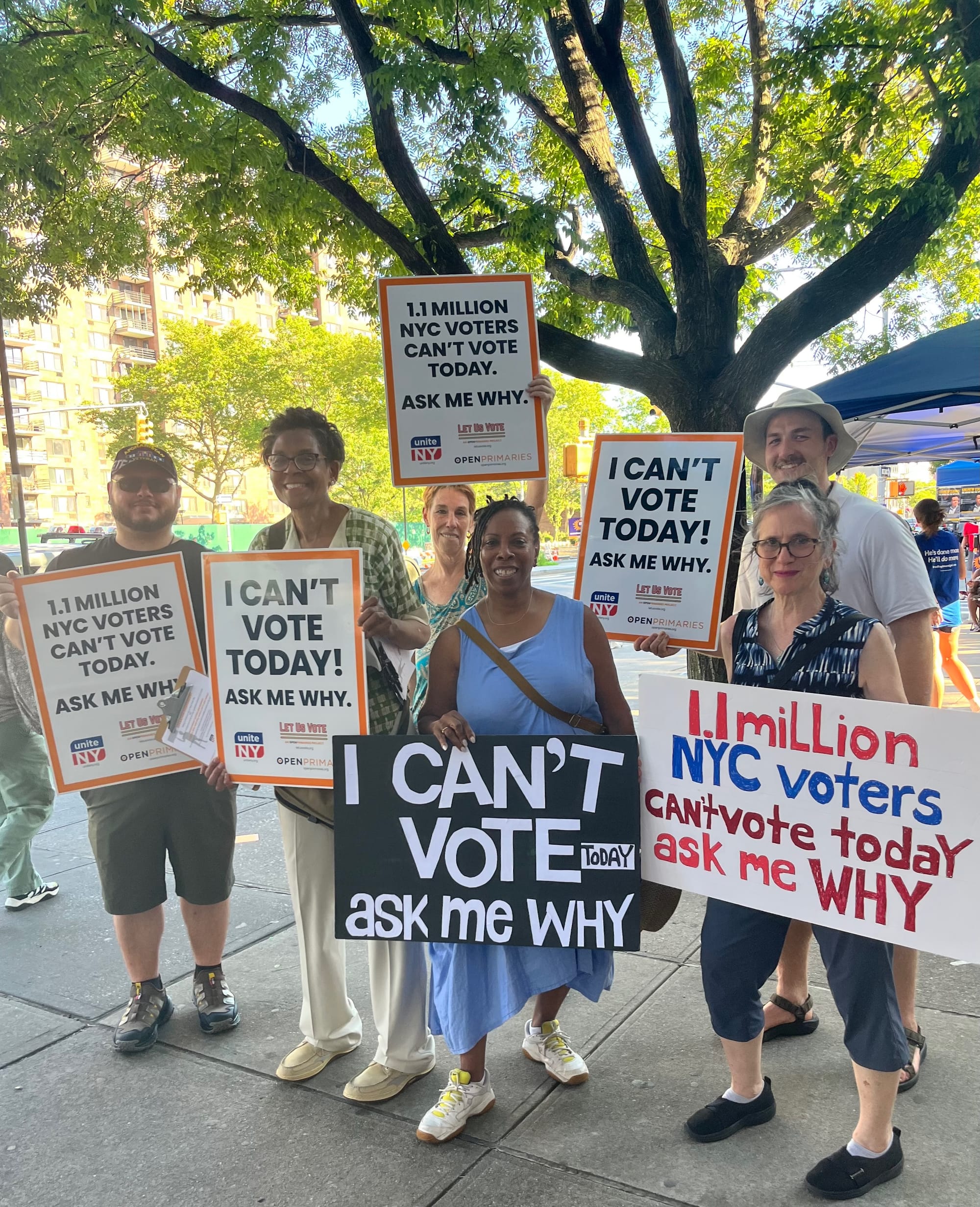
“Most Americans don’t know that New York and other states don’t allow independents to vote in taxpayer-funded primaries. What’s exciting is that there is a growing movement to change that,” said John Opdycke, president of Open Primaries.
The impact closed partisan primaries have on elections cannot be understated. Not only are most elections in New York safe for one party or the other, meaning the most impactful choices are made in primary elections, but these elections end up being decided by less than 10% of the voting population (often times much less).
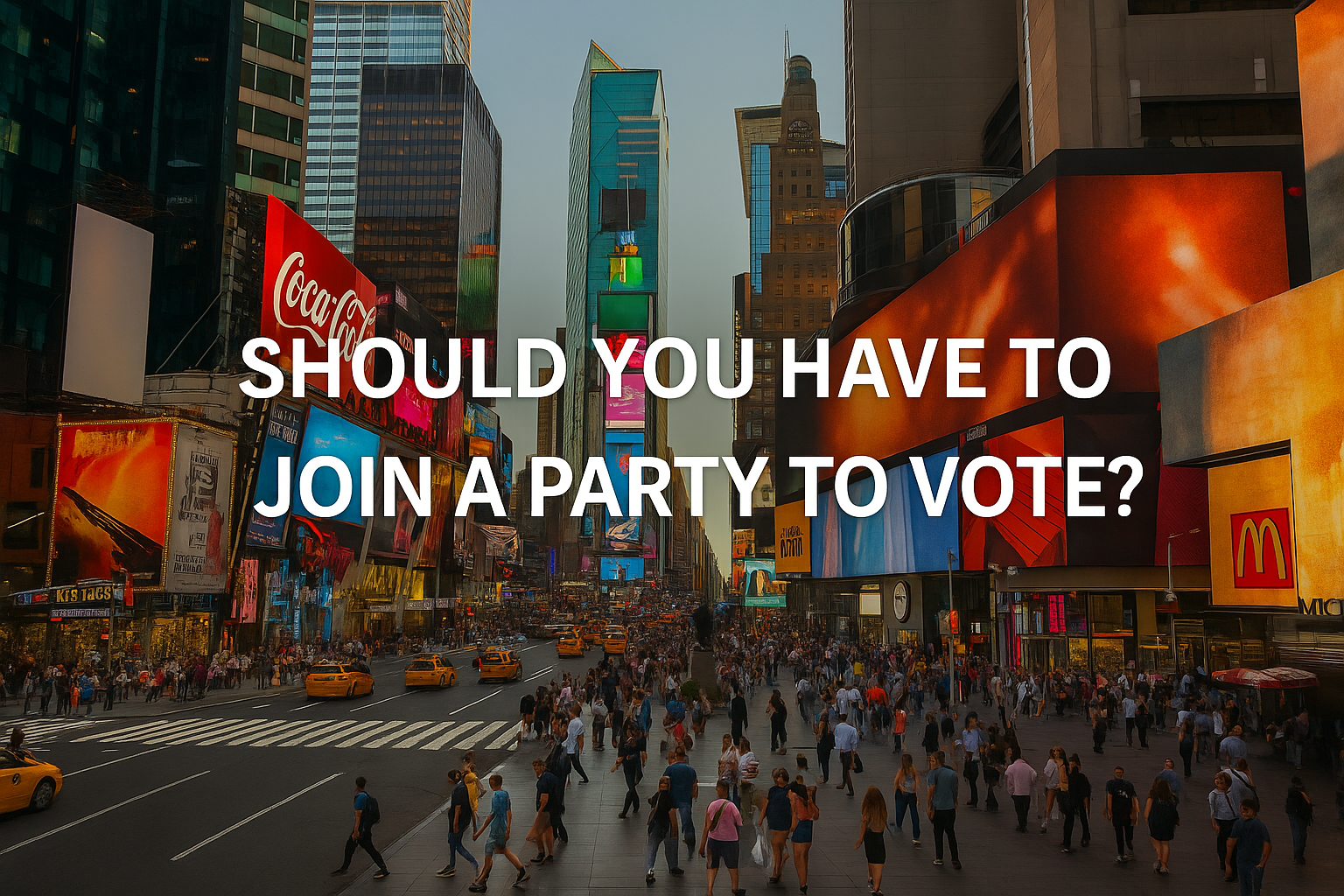
In the NYC mayoral race, Zohran Mamdani has been declared the projected winner in the Democratic primary after he beat former Gov. Andrew Cuomo and the rest of the large field vying to be the next mayor with 43.9% of first-choice selections. While there will be multiple rounds of instant runoff to get Mamdani to 50%, he was declared the winner with 362,789 votes.

Here’s a quick numbers breakdown:
- There are roughly 5.6 million eligible voters in NYC (accounting for registered and eligible unregistered voters).
- Turnout in the 2025 primary is estimated to be a little over 976,100.
- While news outlets like to call this a “whopping” figure, it's 17.4% of the electorate.
- Mamdani was declared the winner with 6.5% of the total eligible electorate voting for him.
The reason that 6.5% figure is so significant is because NYC is undisputably a one-party city. Democrats have an overwhelming advantage in voter registration. They hold 45 out of 51 city council seats. All the top offices in the city are held by Democrats. So, unless the general election turns into a 4- or 5-person race (which could split votes in unpredictable ways), odds are heavily stacked in Mamdani’s favor.
When such a small percentage of voters decide election outcomes, it hurts both representation and diminishes a candidate’s incentive to be accountable to more voters than the handful that ensured their election. And, when voters are denied meaningful choice, they are less likely to participate in general elections.
Here's a voter turnout chart from the NYC Charter Revision Commission:
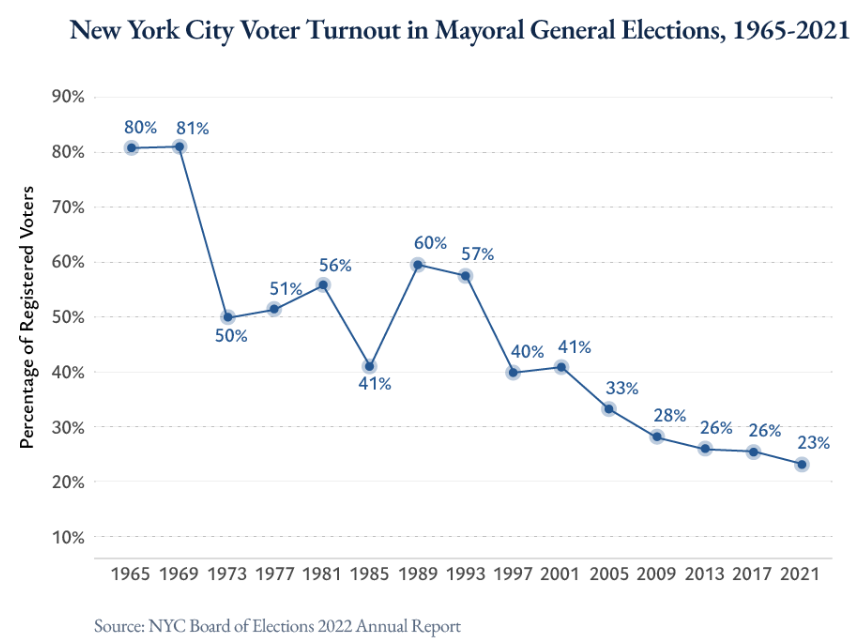
The NYC Campaign Finance Board released a report in April that found independent voters in the city – half of whom are under the age of 40 and make up 1-in-5 registered New Yorkers – were less likely to vote in the general election than their party-affiliated peers, but they tend to be consistently dissatisfied with elected city leadership.
Reform advocates and independent voters who organized Tuesday stress the need for open primary reform.
“Open primaries are an essential step to building a more inclusive democracy where every New Yorker can participate,” said Tim Hoefer of Unite NY. “We know that vision can be realized—as it has in so many other states—and are excited by how many of our neighbors continue to volunteer their time and resources to realize that vision.”
Reform at the state level has been an uphill battle. New York does not have a statewide ballot initiative process, meaning open primary advocates cannot take the issue directly to voters as they have in states like California and Alaska. Changes to the state’s election laws have to be made by lawmakers who benefit from the current primary system.
However, New York City is a different story. The NYC Charter Revision Commission, which considers and advances reform to a wide range of city policy every year, is considering options to end the city’s use of closed primaries, which would bring NYC in alignment with 85% of cities and towns in the US.

This is not the first year the commission has considered primary reform, whether by simply opening partisan primaries to independent voters or restructuring city elections to be nonpartisan. However, several disenfranchised voters have shown up to testify this year, including high-profile names like Assemblymember Robert Carroll and former CNN anchor John Avlon.
There is a chance NYC voters could decide for themselves if they want open primary elections in November if the Charter Revision Commission decides on a measure to put on the ballot – which for reform advocates would be a victory not only for independent voters in the city, but would add pressure for state lawmakers to act.
 Shawn Griffiths
Shawn Griffiths


